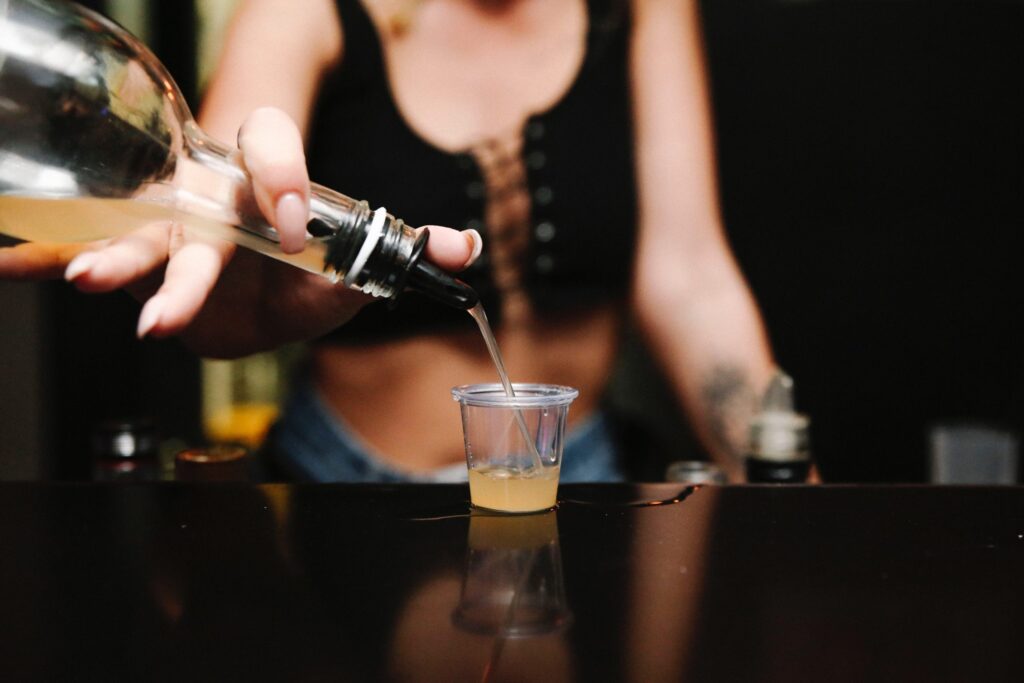Most people know that to sell liquor, they must get a liquor license. But in Chicago, there isn’t just one type of liquor license – there are nine. For example, a Tavern license is designed for establishments whose primary focus is to sell alcoholic beverages, while a Caterer’s license allows catering businesses to serve alcohol in places other than their primary place of business.
Applying for the correct license isn’t difficult once you understand the different types that are offered and determine the primary type of business you own or what services you want to add.
Tavern Liquor License
The Tavern liquor license is a special license for businesses that mainly want to sell liquor. These businesses would include bars, nightclubs, pubs, and other drinking establishments. Such establishments might sell food, but they primarily rely on the sale of liquor.
The number of Tavern liquor licenses issued each year are limited and might be denied based on a moratorium of new or additional establishments in certain districts.
Under a Tavern liquor license, anyone entering the place of business alone must be 21 years old or older. Anyone under 21 can only enter with a parent or legal guardian and must follow all the rules pertaining to the service of alcohol. The operator of the tavern has the burden of ensuring compliance with these requirements.
Packaged Goods Liquor License
A Packaged Goods liquor license is required for business which sell liquor that is sealed and labeled for consumption off the premises. These establishments are focused on retail sales of liquor, such as liquor stores, grocery stores, and convenience stores. Any of these businesses would need a packaged goods liquor license to sell beer, wine, and other spirits.
The same moratorium that applies to a Tavern liquor license also applies to a Packaged Goods license. Depending on the store’s location, they may be denied a license despite otherwise qualifying.
Retail businesses licensed to sell liquor are also required to have regular health, fire, building, plumbing, and ventilation inspections.
Consumption on Premises-Incidental Activity License
A Consumption on Premises-Incidental Activity license (COP) is a fancy way of saying “a restaurant that serves liquor.” Unlike a tavern license, a COP license is reserved mainly for restaurants that primarily serve food but may choose to add alcoholic beverages to their menus in order to enhance the dining experience for their customers. However, there are other types of businesses that may feature liquor sales as a secondary activity, including hotels, bowling alleys, and theaters.
These businesses may also fall under moratorium restrictions, so owning such a business requires due diligence. In addition to obtaining the proper license, regular fire, health, building, plumbing, and ventilation inspections must also be passed.
Club License (Not-for-Profit Club)
A liquor license called a Club license (Not-for-Profit Club) is a license specifically for not-for-profit organizations with a membership of at least 50 people that want to serve liquor. A few examples of these types of private clubs would be the American Legion and Veterans of Foreign Wars. These and other clubs may want to serve liquor as a service to their members but serving or selling alcohol is not their primary purpose.
In order for a club to obtain a Not-for-Profit Club license, they must also have the ability to serve food.
Caterer’s License
A Caterer’s liquor license is designed for catering businesses located in Chicago but who serve events in locations other than their primary place of business. In order to serve alcohol at an event, the caterer must apply for and be granted a caterer’s liquor permit to serve food and alcoholic beverages inside the city limits of Chicago. Anyone who applies for a Caterer’s license must also have a valid retail food establishment license.
Outdoor Patio
Unlike many of the other liquor licenses, the Outdoor Patio liquor license is an add-on license to a Tavern, Not-for-Profit club, or Consumption on Premises-Incidental Activity license. The Outdoor Patio liquor license is for businesses that wish to serve alcohol outdoors on a patio that is adjacent to another business. This liquor license does not allow serving alcohol in sidewalk cafes. That is an expansion onto public property and requires a Sidewalk Café Permit. The outdoor patio must be on private property owned by the business holding the original liquor license.
To be approved for an Outdoor Patio liquor license, the application requires a business site plan, outdoor floor plan, liquor liability insurance certificate that extends to outside use, and an occupancy placard. These requirements are in addition to the other inspections required to open the business, such as health, fire, plumbing, ventilation, and building inspections.
Late Hour License
A Late Hour license is for businesses that wish to remain open and serving liquor after the regular closing time of 2:00 A.M. This is an additional license to the appropriate liquor license required for the main business, typically a Tavern liquor license. The Late Hour liquor license allows for the serving of liquor until 4:00 A.M.
In addition to the other required inspections, any business wanting a Late Hour license must submit a business site plan, floor plan, Late Hour Petition, and other required documents, plus a building inspection.
Special Club-Wrigley Rooftop and the Navy Pier Mobile and Navy Pier Fixed Liquor License
The Special Club-Wrigley Rooftop and the Navy Pier Mobile and Navy Pier Fixed liquor licenses are both unique and site-specific liquor licenses. The first type is a special license limited to the area adjacent to Wrigley Field, and is only valid from March through November. The other type of license is only valid for the sale of alcohol on the Navy Pier, either from a fixed location or from a mobile pushcart.



